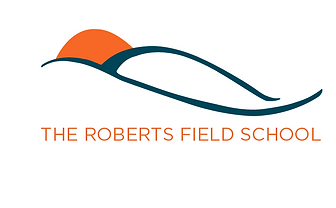The Field in Roberts Field
- Khahtee V Turner

- Mar 10, 2022
- 2 min read

What puts the “Field” in Roberts Field School? It would be easy to rely solely on the grace and consistent practice of our signature Day in the Field (DITF) program to define the “Field” that makes us who we are as learners and educators. However, our identity as a field school goes much deeper than our weekly commitment to DITF and has broader relevance to our mission and vision. Rest assured, DITF does indeed capture and represent much of the spirit of our field identity. As noted on the Arts and Culture page of the RFS website, “As humans, when we are nurtured in building relationship with the entire diversity of the [natural] world, we are most saliently connected to the full capacity of self.” If you’ve had a chance to read our previous notes on the commitments of DITF, you’ll be familiar with the emphasis we place on mindful observation and reflection. From this grounded, alert, and appreciative state, Roberts Field students are primed for the immersive, artistic, and scientific exploration DITF offers.
Our stated goals of DITF further elucidate, “when we are nurtured to take part in the vast fields of learning, our growth is exponential and our full potential as individuals and community is heightened.” What does that mean, you ask? This further commitment to not only the literal fields of Prospect Park, but all the philosophical and intellectual fields as well, provides the foundation for the breadth, depth, value, and differentiating rigor and service of our identity as a field school.

Field studies, which form the basis of the RFS curriculum, are characterized by a few defining practices including:
direct observation (gathering of contextual data)
participant observation (immersive research)
ethnography (social research)
qualitative interviews (open-ended questioning to discover patterns)
case studies (in-depth analysis of a person, situation, or event.)
Take a quick glance at the weekly Lenses your child(ren)’s teachers send home, and I’m sure you can identify examples from the list above. These practices encourage a student-centered, authentic, competency-based, approach to learning with real-world applications. These practices and approaches which are the underpinning of our RFS intellectual mindset and culture are also why field studies are considered a benchmark for excellence in the most reputable and esteemed universities.
Finally, when schools are functioning optimally, they are much more than institutions for student learning. At their best, schools are essential community partners and social enterprises for affecting positive change.
Roberts Field is actively engaging and building community partnerships to allow for our mission to impact social and educational spheres beyond the boundary of our programmatic activity -- and to collaborate with and be supported by entities that enrich and expand our mission’s wingspan as a school. As our members, we look forward to you joining us in this place of Field within our school identity, in the diversity of its meaning and application, and in the community partnerships in which your family will also be involved. Through these community partnerships we are especially excited to offer you ongoing opportunities in which to learn and expand educationally with RFS.
In Joy,
Khahtee and Carney








Comments